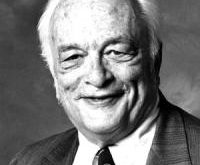from Dean Baker U.S. trade policy is truly fascinating. Probably more than in any other area of public policy, trade agreements are structured by corporate interests behind closed doors. Then when a deal is produced, the establishment media and economists insist that we have to support the deal behind the important principle of “free trade.” The opponents are treated as knuckle-dragging Neanderthals who just can’t understand how the economy works. We got another episode in this...
Read More »Mathematics is to science what a hammer is to a carpenter.
from Rob Reno Mathematics is to science what a hammer is to a carpenter. It is a man-made tool (a language invented as needed) with an uncanny power to accurately measure physical reality. But it is not the only tool in a scientists toolbox, albeit an essential one and indispensable for creating an intersubjective verifiable intelligent discussion of the material aspects of the cosmos. But it is not necessarily a part of the higher realization of truth. The recognition of emergent...
Read More »Unemployment and real wages
from Lars Syll Not exactly the story that Mankiw et consortes tell you. But Heiner Flassbeck did.
Read More »Knight and Keynes have very different concepts of uncertainty
from Paul Davidson Knight and Keynes have very different concepts of uncertainty. Knight believes that uncertainty is epistemological problem where humans do not have the mental ability to see the future even if it actually knowable currently. Keynes argued the future can not be derived from analyzing the past and current relationships. On page 210 of his book Knight writes that the future “universe may not be knowable ,,,[but] objective phenomenon… is certainly knowable to a degree so...
Read More »Dean Baker Live Stream
Support the stream: https://streamlabs.com/deanbaker1
Read More »Dean Baker Live Stream
Support the stream: https://streamlabs.com/deanbaker1
Read More »On NAIRU and NAIBER
from Maria Alejandra Madi Throughout the last decades, the nominal interest rate became the dominant monetary policy instrument. Looking backward, the early 1980s proved to be a transition period in terms of monetary policy. After the monetarist experiences of Thatcher and Reagan, there was a pragmatic shift from the supply of the monetary base to the interest rate as monetary policy instrument. The recognition that the control of the monetary base could not only impose extreme volatility...
Read More »Vickrey on deficits and obfuscatory financial rectitude
from Lars Syll We are not going to get out of the economic doldrums as long as we continue to be obsessed with the unreasoned ideological goal of reducing the so-called deficit. The ‘deficit’ is not an economic sin but an economic necessity […] The administration is trying to bring the Titanic into harbor with a canoe paddle, while Congress is arguing over whether to use an oar or a paddle, and the Perot’s and budget balancers seem eager to lash the helm hard-a-starboard towards the...
Read More »Greta Thunberg’s speech on economic growth at London’s Houses of Parliament
My name is Greta Thunberg. I am 16 years old. I come from Sweden. And I speak on behalf of future generations. I know many of you don’t want to listen to us – you say we are just children. But we’re only repeating the message of the united climate science. Many of you appear concerned that we are wasting valuable lesson time, but I assure you we will go back to school the moment you start listening to science and give us a future. Is that really too much to ask? In the year 2030 I will...
Read More »Median income: US, UK, France and Germany – 50 year trends
United States Source: An Economics Sense United Kingdom Source : UK Office for National Statistics France France and United States VOX-FI
Read More » Real-World Economics Review
Real-World Economics Review




